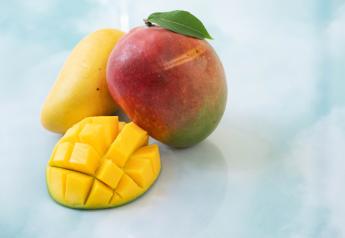Oppy looks for increases in Chilean cherries and citrus

Vancouver, British Columbia-based Oppy expects similar Chilean produce volume compared with last season, but there are volume shifts within categories, said Eric Coty, vice president of South American operations.
“With planned increases among citrus and cherries in particular, along with apples and pears most likely, we look towards bringing more Chilean products to market alongside our grower partners,” Coty said.
Oppy has a long history of marketing Chilean fruit, Coty said, and the marketer’s annual volume from Chile now exceeds 4 million cartons.
Oppy’s Chilean fruits include apples, apricots, avocados, berries, cherries, citrus, grapes, kiwifruit, nectarines, peaches, plums, lemon plums, pears and pluots. A variety of those items, including table grapes, blueberries, lemons and a full line of easy-peeler mandarin oranges, are available in the Ocean Spray label, which boasts 96% brand awareness, Coty said.
“As branded produce continues to dominate the produce snacking category, Oppy is honored to represent Chilean fruit in one of the most recognizable produce brands: Ocean Spray,” Coty said. “Appealing to younger shoppers aged 18-34 and present on more than 50 SKUs across the store increasing brand visibility and credibility, Ocean Spray branded produce is perceived as high quality and stands out from the others on the shelf."
Oppy also offers a variety of promotional tools from point of sales material, posters, header cards, display bins, social media content and more, along with an array of attractive and innovative packaging solutions, Coty said.
“We also love the materials created by the Chilean Fresh Fruit Association, which help shoppers recognize the freshness of this fruit in season,” he said.
Challenges and future growth
Chilean growers and exporters are dealing with challenges in managing logistics and increasing costs for water, fertilizer, labor, packaging and more, Coty said.
“This is a challenging economic environment for all involved in fresh produce,” Coty said. “Though Chile has its advantages that has helped counteract that, the market is shifting, causing those advantages to shift as well.” Recent increases in the cost of Chile’s farm labor, combined with higher transportation and ocean freight costs, are putting pressure on growers and exporters, he said.
“Innovation, efficiencies, and robust cost-control are all critical now more than ever,” he said.
Despite the challenges, there continues to be opportunity for growth in Chilean produce in coming years, Coty said.
“Cherries are first to mind when speaking of growth from Chile,” he said. “The industry is on an exceptional growth trajectory, with projected exports of around 85 million cartons this season. With more [cherry] orchards coming into commercial production every year, Chile is projected to reach 125 million cartons in the future, making it the largest cherry producing country on the planet."







